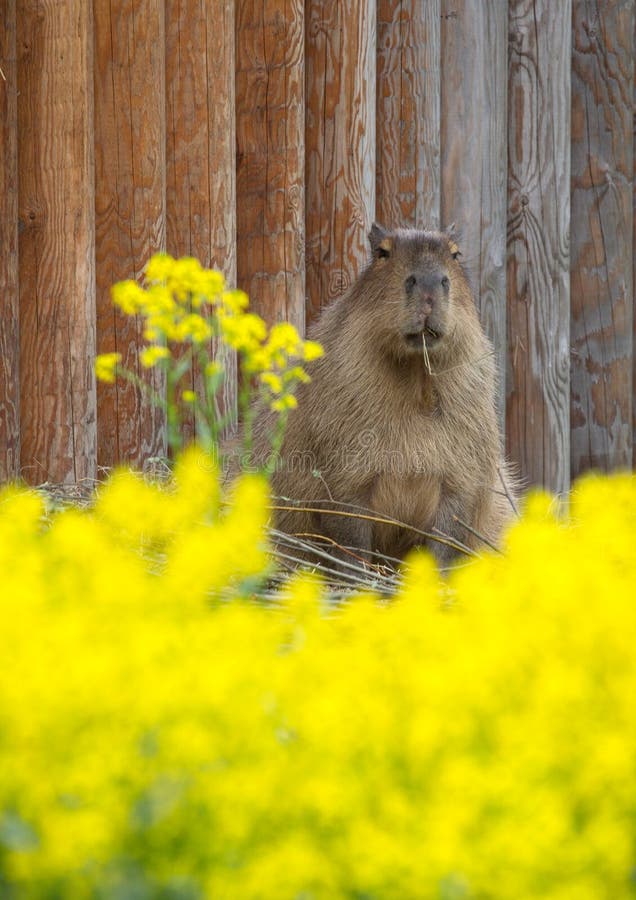
Introduction
Capybaras are adorable creatures known for their friendly and sociable nature. Native to South America, these large rodents have captured the hearts of many with their cute appearance and unique behaviors. One of the most delightful sights is watching a capybara happily munching on its favorite food. In this article, we will explore the world of cute capybaras eating and delve into their fascinating eating habits.

What Do Capybaras Eat?
Capybaras are herbivores, meaning they primarily consume plant-based foods. Their diet mainly consists of grasses, aquatic plants, and various types of vegetation found near water bodies. These semi-aquatic mammals also enjoy indulging in fruits and vegetables whenever they are available.

Eating Habits of Capybaras
Capybaras are known for their voracious appetites and spend a significant portion of their day foraging for food. They typically feed during the early morning and late afternoon when the temperature is cooler. These sociable animals often gather in groups to eat, making it a communal activity that strengthens social bonds.

Grass, the Capybara's Favorite
Grass forms a major part of a capybara's diet. They graze on different types of grasses, including reeds and sedges. Capybaras have adapted well to aquatic environments and are often seen enjoying a meal near rivers, lakes, or swamps where they have easy access to fresh grass.

Feeding Behavior
When capybaras come across a patch of grass, they use their sharp front incisors to cut it close to the ground. They have a unique chewing pattern where they move their jaws sideways to grind the grass effectively. This helps them extract the maximum nutrients from their food.

Aquatic Delights
As semi-aquatic animals, capybaras also enjoy indulging in aquatic plants. They often submerge themselves in water and use their nimble lips to pluck the floating vegetation. Aquatic plants not only provide them with a refreshing snack but also help regulate their body temperature in hot weather.

Variety in the Diet
While grass is their primary food source, capybaras do not shy away from diversifying their diet. They relish the taste of various fruits and vegetables, including melons, pumpkins, and leafy greens. This variety in their diet ensures they receive a balanced nutritional intake.

Sharing is Caring
One remarkable behavior observed in capybaras is their willingness to share food. They often engage in a behavior known as "coprophagy," where they eat each other's feces. This may sound unpleasant to us, but it serves an important purpose for capybaras as it helps them digest cellulose more efficiently.

The Role of Food in Socializing
Food plays a crucial role in the social dynamics of capybaras. Sharing a meal together strengthens social bonds within their groups. Capybaras will often groom each other while eating, reinforcing the sense of community and cooperation among them.

Feeding Young Capybaras
When it comes to feeding their young, capybara mothers are incredibly nurturing. They produce a special type of feces called "cecotropes" that are rich in nutrients. These cecotropes are consumed by the young capybaras, providing them with essential vitamins and minerals for their growth.

Challenges of Feeding
While capybaras enjoy a diverse diet, they do face certain challenges when it comes to their feeding habits. As their habitat continues to shrink due to human encroachment, finding sufficient food resources can become difficult. Competition for food among capybaras and other herbivores also poses a challenge.

Protection During Feeding
Capybaras are always vigilant while feeding. They rely on their large groups for protection against potential predators. While some members of the group eat, others keep a watchful eye for any signs of danger. This cooperative behavior ensures the safety of the entire group.

The Joy of Watching Capybaras Eat
Observing capybaras eat is a delightful experience. Their gentle and calm demeanor while enjoying their meals is truly captivating. Whether it's munching on grass or savoring a juicy watermelon slice, capybaras have a way of making even the simplest of actions appear incredibly endearing.

Conclusion
Capybaras are undoubtedly adorable creatures, especially when they are happily munching on their favorite foods. Their diet consists of grasses, aquatic plants, fruits, and vegetables, providing them with a diverse nutritional intake. Sharing meals and engaging in communal eating is an important social activity among capybaras, strengthening their bonds. Despite the challenges they face, these charming creatures continue to captivate us with their relaxed and contented eating habits.